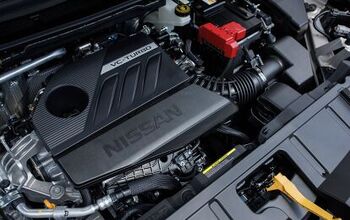European Automakers Celebrate New Tariff Deal

European automakers are finally getting a break after months of uncertainty over U.S. trade policy.
Key Points
- Tariffs on European-built cars shipped to the U.S. will be reduced to 15 percent retroactive to August 1, easing pressure on automakers like BMW, Mercedes-Benz, Volkswagen, and Stellantis.
- In exchange, the European Union agreed to drop duties on U.S. industrial goods, expand access for American agriculture and seafood, and commit to major imports of U.S. energy, AI chips, and defense equipment.
- Europe’s wine and spirits sector, worth $9 billion in annual exports to the U.S., failed to secure tariff relief and will continue facing existing trade barriers.
Under the new agreement reached between Washington and Brussels, tariffs on European-built cars shipped to the United States will be reduced to 15 percent, with the measure applied retroactively from August 1.
The move marks a significant reduction from the 27.5 percent tariffs European carmakers had been paying, and comes just weeks after President Donald Trump threatened to install 30 percent duties across multiple industries. Before Trump’s return to the Oval Office earlier this year, the base tariff rate for EU-built cars stood at a mere 2.5 percent.
Initially, automobiles had been excluded from the reduced 15 percent rate negotiated in July between Trump and European Commission President Ursula von der Leyen. But the latest announcement confirms cars will benefit, giving automakers like BMW, Mercedes-Benz, Volkswagen, and Stellantis much-needed relief in a crucial market. It's unclear how much this will alter long-term planning for those automakers considering opening production facilities in North America.
But for the rest of Europe's industries, the price of the car concession is steep—in exchange for lower tariffs on cars, the EU has agreed to eliminate duties on all U.S. industrial goods and expand market access for American agriculture and seafood products. The EU also committed to major U.S. energy imports—valued at $750 billion through 2028—as well as at least $40 billion in American-made AI chips, and increased purchases of U.S. defense equipment.
According to EU trade commissioner Maros Sefcovic, the work now turns toward implementing legislation to allow imports of the agreed U.S. goods. Only once that process begins will the U.S. lock in the reduced 15 percent car tariffs.
Become an AutoGuide insider. Get the latest from the automotive world first by subscribing to our newsletter here.

An experienced automotive storyteller and accomplished photographer known for engaging and insightful content. Michael also brings a wealth of technical knowledge—he was part of the Ford GT program at Multimatic, oversaw a fleet of Audi TCR race cars, ziptied Lamborghini Super Trofeo cars back together, been over the wall during the Rolex 24, and worked in the intense world of IndyCar.
More by Michael Accardi



































Comments
Join the conversation